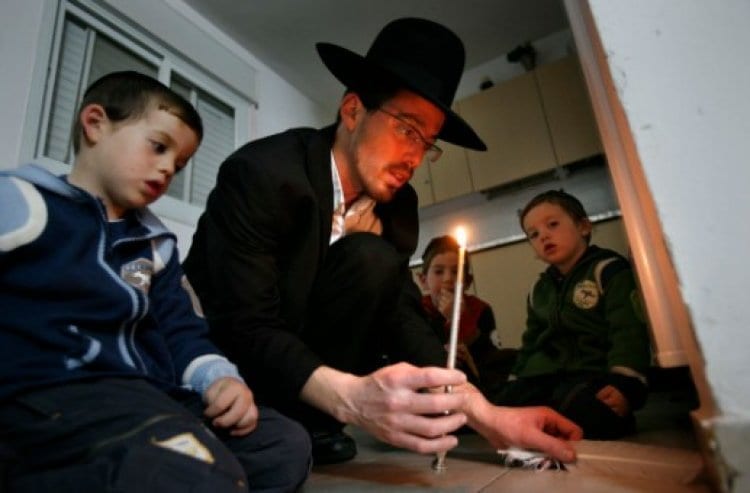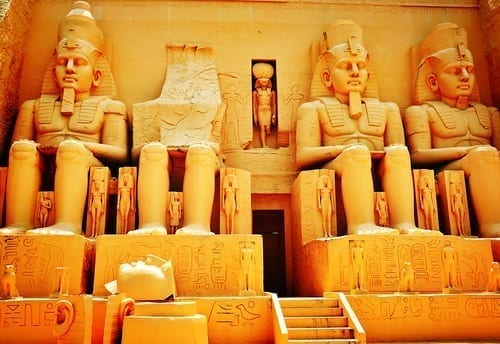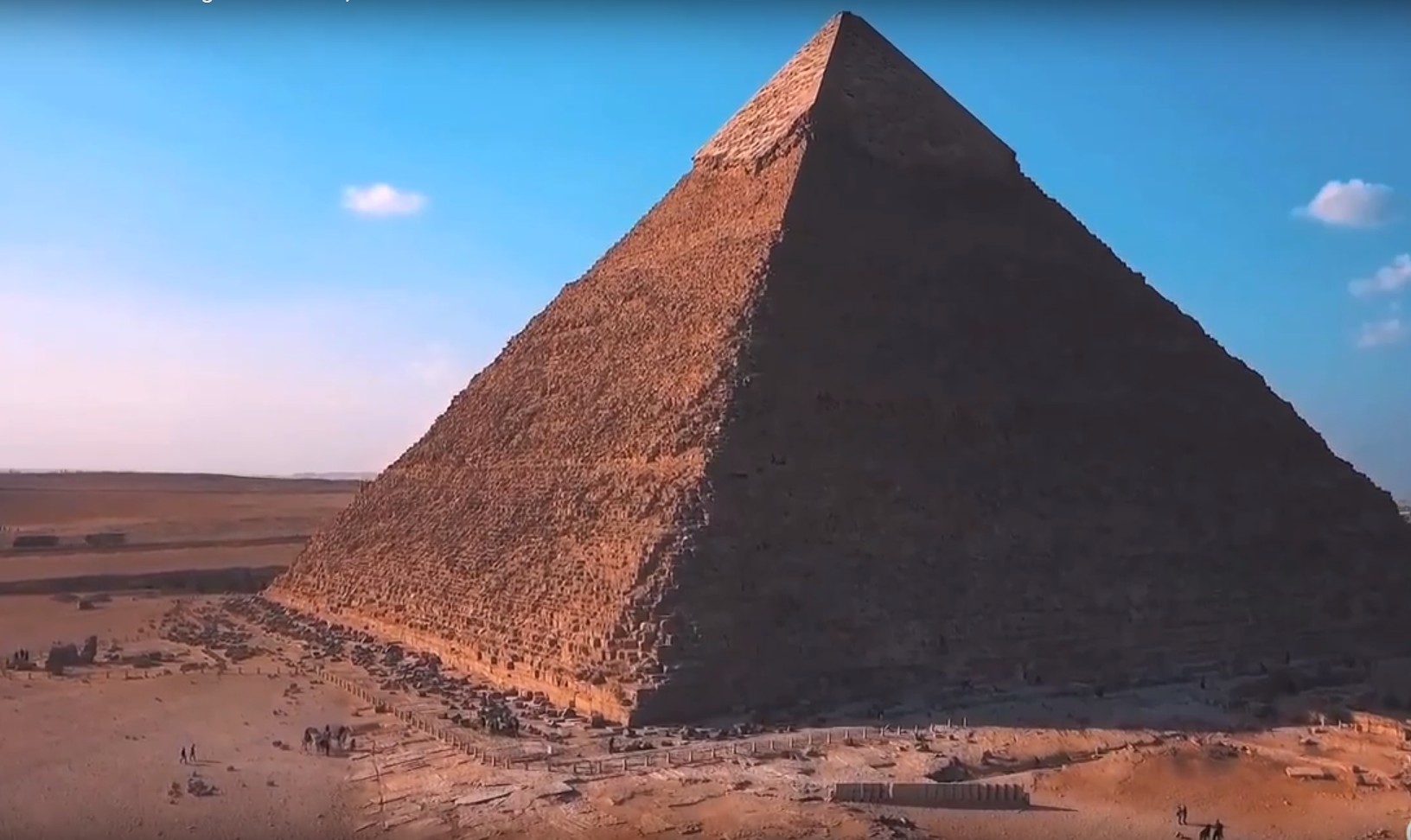There are people among us who are spending Pesach for the first time banished from their homes due to Hurricane Sandy. There are others who may be in their own homes, but they are devastated and lonely due to personal loss. There are parents who are suffering as they see their children, “at risk” or estranged. On a national level we have also had a difficult year. Merubim torchei amcha, the needs of Your nation are great, but we are somehow unable to attain both our material and spiritual needs. Radical Islam, with its institutionalized violence and anti-Semitism, is growing exponentially and spreading its tentacles throughout the world. What can we learn from the suffering of our forefathers in Mitzrayim and from their ultimate redemption? When the Haggadah praises Hashem for bringing us out “from mourning to a festival,” to what mourning is it referring? On the surface, the “mourning” seems to refer to the physical and emotional suffering of the Jewish people in Egypt, which caused them to be in a state of extreme distress throughout the period of their enslavement.
But there is another possible interpretation of the Haggadah’s choice of words. The Torah relates (Shemos 13:18) that the Jewish people were “chamushim” when they left Egypt. The most straightforward translation of the word chamushim is armed, but the Midrash offers an entirely different explanation: “One out of five (chamishah)—and some say one out of fifty, and some say one out of five hundred—left [Egypt]…. When did [the others] die? During the three days of darkness….” The Gemara (Sanhedrin 111a) indicates that the number of deaths was even greater: “Rabbi Simai says: The Torah states (Shemos 6:7), ‘I will take you to Me as a nation,’ and it also states (ibid., v. 8), ‘I will bring you….’ It equates their departure from Egypt with their entry into the Land [of Israel]. Just as only two out of 600,000 entered the Land, so only two out of 600,000 left Egypt.” In all likelihood, there were hardly any Jewish families that did not suffer the loss of a loved one at the time. This lends an entirely new dimension to the concept of “mourning” mentioned in the Haggadah.
How, in fact, did the Jewish people recover from their grief when they left Egypt? How did Yetzias Mitzrayim transform their mourning into a festival? Is it possible that the joy of liberation caused them to suddenly forget their deceased family members and to cease their mourning?The Crucible of Mitzrayim Let us raise another question: How is it possible that the Jewish people suffered such a major tragedy, with the vast majority of the nation perishing, and the Torah makes no mention of it other than through a subtle allusion? The Zohar (Parshas Mishpatim, p. 119b) and the writings of the Vilna Gaon (Even Shlomo, ch. 11, para. 5) both teach that it is normal for the suffering of exile to reach its peak intensity just before the redemption arrives. The Vilna Gaon explains that this is “just as it becomes darkest before the light of day arrives, and as a pregnant woman who approaches birth experiences the most pain of her entire pregnancy.” In keeping with this principle, the Jews’ enslavement in Egypt intensified to its peak just before they were redeemed from servitude. Perhaps this is why Hashem exercised His attribute of judgment to a greater degree during the plague of darkness right before the redemption than He had done before.
From Darkness to Great Light
We suggest that when the Haggadah goes on to thank Hashem for bringing us out “from darkness to a great light,” we are actually giving thanks both for the darkness and for the light. Had the “great light” not been preceded by “darkness,” we would not have been privileged to experience that light. It was only because of the darkness of exile, particularly when it reached its peak, that the Jewish people were worthy of experiencing the “great light” and becoming Hashem’s chosen nation. Otherwise, we would not have been worthy of redemption, and certainly not of having the Shechinah rest upon us. Thus, although both at the time of leaving Mitzrayim and at the time of leaving the wilderness and entering Eretz Yisrael, the Bnei Yisrael sustained tragic losses of life, there is a fundamental difference between the two. When only two out of all 600,000 Jews of the first generation in the wilderness survived, that was a punishment for the Jewish people, and that is why the Torah mentions it repeatedly. But the death of the vast majority of the nation in Egypt was not a punishment: Rather, its purpose was to cleanse and purify the people in order to make them worthy of redemption. For this reason, the Torah only hints at the deaths of so many Jews without describing the events outright.
From Mourning to a Festival
With this idea, we can also explain how Bnei Yisrael’s mourning was suddenly transformed into festivity. At first, when such a major percentage of the Jewish people died, the rest of the nation was plunged into mourning. We can assume that they were devastated by their losses. Nevertheless, when it became clear that this pain was the necessary dark before the light, their time of grief was transformed into a festival. When viewing tragedy—especially the ultimate tragedy of our times, the Holocaust, it behooves us to try to understand those losses through the prism of the Torah’s teachings about the tragedies in Mitzrayim. Klal Yisrael suffered devastating loss and tragedy in Europe. Built upon the ashes of the crematoria, however is the tremendous flourishing of Torah and the rejuvenation of klal Yisrael. Look at how those few broken and orphaned survivors managed to triumph over adversity and rebuild! In addition, gedolei Yisrael have taught us that the above lesson from yetzias Mitzrayim is applicable to our current situation in galus. Just as the increased suffering in Egypt indicated that the ultimate redemption was on its way, the same is true of every other exile.
In this generation, we have witnessed a frightening rise in the power of the forces of evil. The world has been plunged into a darkness of unprecedented intensity—but, as we have learned, the deepening of the darkness of exile indicates that the light of redemption is imminent. As Rabbi Elchanan Wasserman related, quoting the Chofetz Chaim, “The nature of everything is to become stronger and to use all of its power when the time comes for it to cease to exist. Although our generation has its own particular challenges and suffering, Chazal have taught us that when we suffer loss and tragedy, it is important to understand that as difficult as it is, our suffering is certainly in our best interests, and in its own way will be an omen of our own redemption. May we merit seeing the fulfillment of his words when the darkness will be transformed into the ultimate great light!
0 66 5 minutes read





